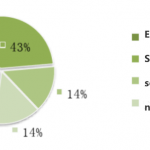Title: Psychological Analysis of Online Consumer Reviews and Product Quality Analysis
Abstract: With the rapid development of e-commerce, online consumer reviews have become increasingly important. This paper provides a detailed analysis of online consumer reviews from the perspectives of psychology and product quality and explores the types of reviews and their significance to other consumers and e-commerce operators.

I. Introduction
With the development and popularization of internet technology, more and more buyers and sellers are conducting transactions through e-commerce platforms. After consumers purchase products and use them for a period of time, some consumers will review the products, that is, supplement comments on the actual use of the product after purchase. Reviews not only help other consumers understand the true situation of the product but also help sellers improve products and services, thereby enhancing performance. This article will analyze the types of reviews and their importance to other consumers and e-commerce operators from the perspectives of psychology and product quality.

II. Types of Reviews and Subdivision Analysis
From a psychological perspective, the main types of reviews can be divided into the following categories:
(1) Satisfaction reviews: The consumer’s satisfaction with the product is reflected in the review, such as the cost-performance ratio, practicality, appearance, etc.
(2) Emotional expression reviews: Consumers express emotions such as love, disappointment, and anger towards the product in the review.
(3) Social identity reviews: Consumers seek resonance with other consumers in the review to gain a sense of identity.
(4) Retaliatory reviews: Consumers express complaints and dissatisfaction through reviews due to dissatisfaction with the product or service, with the aim of revenge.
On this basis, each major category is further subdivided:
(1) Satisfaction reviews:
a. Cost-performance ratio: Consumers focus on the balance between price and performance, and the review will reflect their satisfaction with it.
b. Practicality: Consumers focus on whether the product can meet actual needs, and the review will reflect the user experience.
c. Appearance and design: Consumers focus on the aesthetics and humanized design of the product, and the review will reflect their opinions on this.
(2) Emotional expression reviews:
a. Love: Consumers express their love for the product in the review, possibly due to the product’s features, brand, or other factors.
b. Disappointment: Consumers express disappointment with the product in the review, possibly because the product did not meet expectations, had quality issues, or had poor service.
c. Anger: Consumers express anger towards the product in the review, possibly due to severe quality issues, misleading publicity, or poor after-sales service.
(3) Social identity reviews:
a. Positive identity: Consumers seek resonance with other satisfied consumers through reviews to reinforce their purchasing decisions.
b. Negative identity: Consumers seek resonance with other dissatisfied consumers through reviews to obtain emotional support and comfort.
(4) Retaliatory reviews:
a. Product-related: Consumers complain and condemn serious quality issues or false publicity of the product.
b. Service-related: Consumers express dissatisfaction and complaints about the seller’s service attitude, after-sales service, etc.
III. Significance of Reviews for Other Consumers
Provide real purchase references: Reviews can help other consumers understand the true situation of the product and provide a reference for their purchasing decisions.
Reduce purchasing risks: Reviews help reveal potential product issues, enabling other consumers to avoid purchasing risks.
Form consumer communities: Through reviews, consumers can share experiences with each other, forming consumer communities and improving the shopping experience.

IV. Importance of Reviews for E-commerce Operators
Enhance credibility: Positive reviews help improve the seller’s credibility and attract more consumers to purchase.
Improve products and services: Reviews can help sellers understand consumer needs and dissatisfaction, thereby improving products and services.
Increase customer satisfaction: By paying attention to and responding to consumer reviews, sellers can!
increase customer satisfaction, promote repurchase, and spread word-of-mouth.
Improve performance: Positive reviews can increase consumer willingness to buy, thereby increasing sales and performance.
V. Conclusion
This article analyzes the types of online consumer reviews from the perspectives of psychology and product quality and explores the importance of reviews for other consumers and e-commerce operators. Reviews are an essential means of information exchange on e-commerce platforms and have significant value for consumers, sellers, and platforms. E-commerce operators should pay attention to reviews and improve products and services based on reviews to enhance customer satisfaction and performance.
References:
Zhang Xiaohui. (2018). Research on the Psychological Mechanism and Impact of Online Consumer Reviews. Advances in Psychological Science, 26(4), 678-685.
Huang Ying, & Wang Qiong. (2017). A Review of Research on the Psychological Motivation of Consumer Online Reviews. Advances in Psychological Science, 25(6), 1016-1023.
Chen Wenjing, & Chen Zhiqiang. (2016). Research on the Impact of Online Reviews Based on Consumer Psychology. Business Economy and Management, (6), 51-57.
Liu Jing, & Xiong Xin. (2016). Research on the Phenomenon of Consumer Reviews in E-commerce. Modern Business and Industry, (14), 125-126.
Zhao Lijuan, & Xu Dan. (2015). Research on Emotion Analysis of Online Consumer Reviews Based on Emotional Vocabulary. Business Research, (4), 73-77.
Zhu Lina, & Liu Bingjie. (2014). Research on the Influencing Factors of Consumer Reviews in E-commerce. Consumer Economics, 30(3), 43-45.
Zhang Liwei, & Li Chunjuan. (2013). Analysis of the Types and Characteristics of Consumer Reviews in E-commerce. Business Economic Research, (12), 119-120.
Jin Gang, & Zhu Yan. (2011). Research on Product Quality Evaluation Method Based on Online Consumer Reviews. Chinese Journal of Management Science, 19(4), 107-114.
Ma Jianhua, & Li Qingmei. (2010). Product Feature Mining and Analysis Based on Online Consumer Reviews. Information Systems Engineering, (4), 48-50.
Wang Hongjie, & Xu Pengcheng. (2009). Research on the Psychological Mechanism and Influencing Factors of Online Consumer Reviews. Acta Psychologica Sinica, 41(12), 1189-1201.
Zhang, J., & Yang, Q. (2008). An empirical study on the influence of online consumer reviews on purchase intention. Management World, (5), 131-137.
Li, G., & Dong, N. (2007). Behavioral motivation of online consumer reviews: A study. Acta Psychologica Sinica, 39(6), 1068-1078.
Sun, P., & Zhang, X. (2006). A study on the impact of consumer psychology and reviews in e-commerce. Business Research, (5), 32-35.
Pan, X., & Liu, B. (2005). Characteristics of consumer reviews in the e-commerce environment and their implications for enterprises. Enterprise Economy, (6), 90-92.




